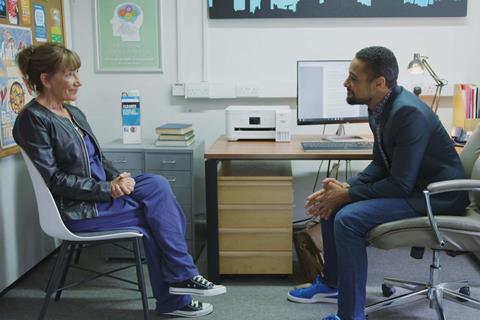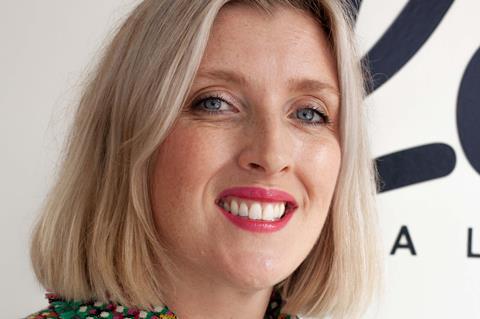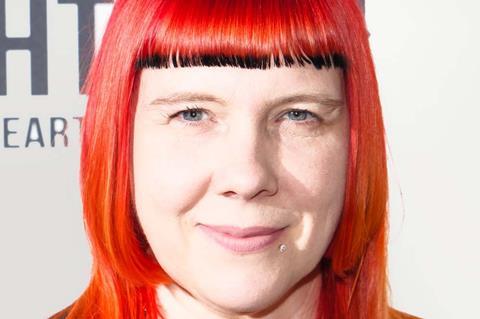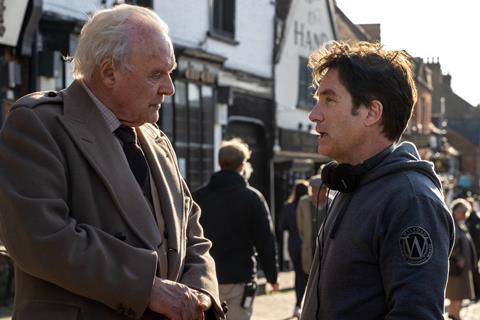
Leading figures in the UK film and TV industry are sounding the alarm about the loss of long-running UK soap Doctors as a rich and egalitarian training ground for behind-the-camera talent.
Creatives who started out on UK soaps include Fleabag creator Phoebe Waller-Bridge, whose first on-screen role was in Doctors, The Full Monty filmmaker Peter Cattaneo, who directed on long-running police soap The Bill, and Frank Cottrell-Boyce, a former Coronation Street and Brookside writer turned Michael Winterbottom collaborator, as well as leading producers such as Bradley Quirk, who has early writing credits on Holby City, EastEnders and Doctors. Now Doctors is airing its last episode today (November 14), Holby City was cancelled in 2022, and Casualty and Hollyoaks have had their hours reduced drastically.

“Soaps are an amazing training ground because they are thick and fast,” notes Lucy Price, founder of crew talent agency Loop Talent, who began her career as a runner on Holby City. “They all have multiple banks of shoots. There are two or three different crews shooting at a time, so you have access to three different directors, three different line producers, three different production teams and a whole load of crew who are upskilling, networking and moving on to the next thing.”
Changing audience tastes and viewing habits coupled with harsh commercial realities have put the great UK soap opera under duress, with broadcasters taking their scythes to the format. “There are a lot of people we want to enable to tell stories, voices that have not been heard enough, that are unlikely to get immediate breaks with films,” says James Hawes, director of One Life and Slow Horses, who cut his teeth on The Bill and Holby City. “It makes that step up, that development of new careers, really hard.”
The fast turnaround and immense volume of near-daily broadcast hours — particularly in the 1990s and early noughties when soaps for all age groups dominated linear schedules, from children’s series Byker Grove to Brookside — enable those breaking into the industry to learn skills and step up within a robust structure and, crucially, earn a living while doing it.
“The most important thing we do as a director is we tell a story,” says Hawes, who is also vice-chair of professional association Directors UK. “We have to tell a story in a very focused way, with all the pressures of production on our backs. How we spend the time, how we spend the budget, how we get the best performances. And there’s nothing quite like the drill and the gym that directors go through on soaps and continuing drama. You are flexing your creative muscles.”

Joy Wilkinson, the Burnley-born writer/director of SXSW premiere 7 Keys, attended the BBC Writers’ Academy, which gave her the chance to train across different soaps. She then went on to write for Doctors from 2006-14.
“Where I come from, not knowing at all how to get into the industry, I could only do it because there was an official way,” recalls Wilkinson. “Even though people think of it as being a factory system and not creative, you are making each episode your own. Doctors was like a short film every day… with a lot more viewers than a short film would get.
“Because Doctors went under the radar, you could do all kinds of things,” adds Wilkinson, referencing a zombie Jane Austen-themed episode in 2013. This was three years before feature Pride And Prejudice And Zombies hit cinemas.
Soaps have also allowed people with no contacts in the industry to build their networks. “I now work with cast I began working with in TV, directors of photography who are now movie directors. We’ve grown up together,” says Hawes.
“They are the unsung universities of our industry,” adds Kris Green, training executive at BBC Studios drama productions. He notes the importance of the geographical spread of soap operas, including the likes of Scotland’s River City and Welsh-language Pobol y Cwm, as providing solid opportunities for those who aren’t based in London and the south east of England and want to get a foot in the door.“They serve the regions. The impact these shows have on-screen and off is profound.”
Closing doors
A concern is that, without the possibility of paid learning opportunities, those who cannot afford to support themselves while drumming up short film credits with little commercial return, go to a costly film school or shop around a pilot episode or feature idea for years, will simply be shut out. The previous UK Conservative government’s apprenticeship schemes were widely panned by the film and TV industries as not being fit for purpose, and the screen sectors are still looking for a realistic way to plug the skills gap.

“I worry about how we will continue to bring on new talent without nurturing some new ecosystem, which clearly has to evolve — things are changing, appetites are changing,” says Hawes, who wants TV commissioners to think of cost-effective ways of developing creative talent.
“I want to encourage broadcasters to think about test-bed, experimental areas,” he adds, “low-budget commissions we can come up with that encourage new talent to come in with fresh ideas.”
In the case of directors, Hawes says, “It has to be built around real experience that takes you on to employable skills that eventually will lead you on to be trusted, to direct something in your own right,” while encouraging filmmakers to be “entrepreneurial”.
Manchester-born writer Furquan Akhtar started out on a traineeship on Coronation Street in 2010, working his way up to storyliner, before moving to Hollyoaks. He has since gone on to work on ITV thriller The Bay and has projects in the pipeline for Miramax, Sony and Channel 4, and is also co-writing his first feature film, for the BFI.
“Even then, it was a bit of a rarity,” says Akhtar of his traineeship. ”It only paid £10,000 for the year, so I had to have a part-time job as well. But it was definitely worth doing. It was one of those things, working class people have to sacrifice in order to be able to do [traineeships] in the first place.”
Akhtar didn’t have a network in the screen industries to help usher him in. Soaps provided an accessible lifeline. “I knew I wanted to write, but I didn’t know how to do it, because I didn’t have anyone [in my life] who had that sort of experience,” he says. “I had to learn everything from scratch – I did everything from being a runner to helping out in the archives. I learnt everything about the soap business. It was real halcyon days for the soaps.”
Structured reality
One TV area that has grown as soaps have lost their stronghold is structured reality. Screenwriter Georgia Lester began on Skins and Hollyoaks before working as a story consultant on reality hit The Only Way Is Essex, ahead of moving into high-end TV. She most recently created, executive produced and wrote her own BBC limited drama, Kidnapped: The Chloe Ayling Story, and is a big advocate for the “high-speed production pace” of reality as a learning space for screenwriters, and for more lateral movement between different editorial strands of TV and film.

“On TOWIE [The Only Way Is Essex], I learnt so much about generating story,” says Lester. “Because it’s real, everything is changing all the time. It’s less about crafting dialogue, it’s more about how you craft stories and characters. I learnt so much about production and editing.”
However, this sector is also going through a challenging period. “Reality is also scrambling for work,” she notes, adding that while “the British industry is proud to have authored dramas by singular writers, we need the opportunity, the money and the writers to offer guest episodes on shows”.
Paid training schemes for writers are now harder to come by from the traditional broadcasters. BBC’s revived Waterloo Road has programmes for junior creatives, as part of the ethos of production company Rope Ladder Fiction. The BBC Writers’ Academy was founded by TV exec John Yorke in 2005, and offered a paid year-long training scheme across BBC soaps. The scheme has evolved since then, with writers’ studios now available for each soap. Applicants must write a 10-page sample script, with successful entrants then taken on to write a paid shadow script.
A few streamer-led opportunities have appeared, such as Netflix and Sky’s Screenwriters’ Fellowship. However, there is apprehension among some screenwriters about whether these schemes translate into real credits.
Hawes believes government and industry-wide collaboration is paramount. “We need to work together to find the right answers to this,” he says. “And they will be creative. They can possibly lead to finding new talent, and discovering new genre, that’s bold. We neglect it at our peril. It’s important culturally — this is about nurturing British stories and British storytellers.”















![[L-R]: Amanda Villavieja, Laia Casanovas, Yasmina Praderas](https://d1nslcd7m2225b.cloudfront.net/Pictures/274x183/6/4/1/1471641_pxl_20251224_103354743_618426_crop.jpg)








![[L-R]: Amanda Villavieja, Laia Casanovas, Yasmina Praderas](https://d1nslcd7m2225b.cloudfront.net/Pictures/100x67/6/4/1/1471641_pxl_20251224_103354743_618426_crop.jpg)
No comments yet